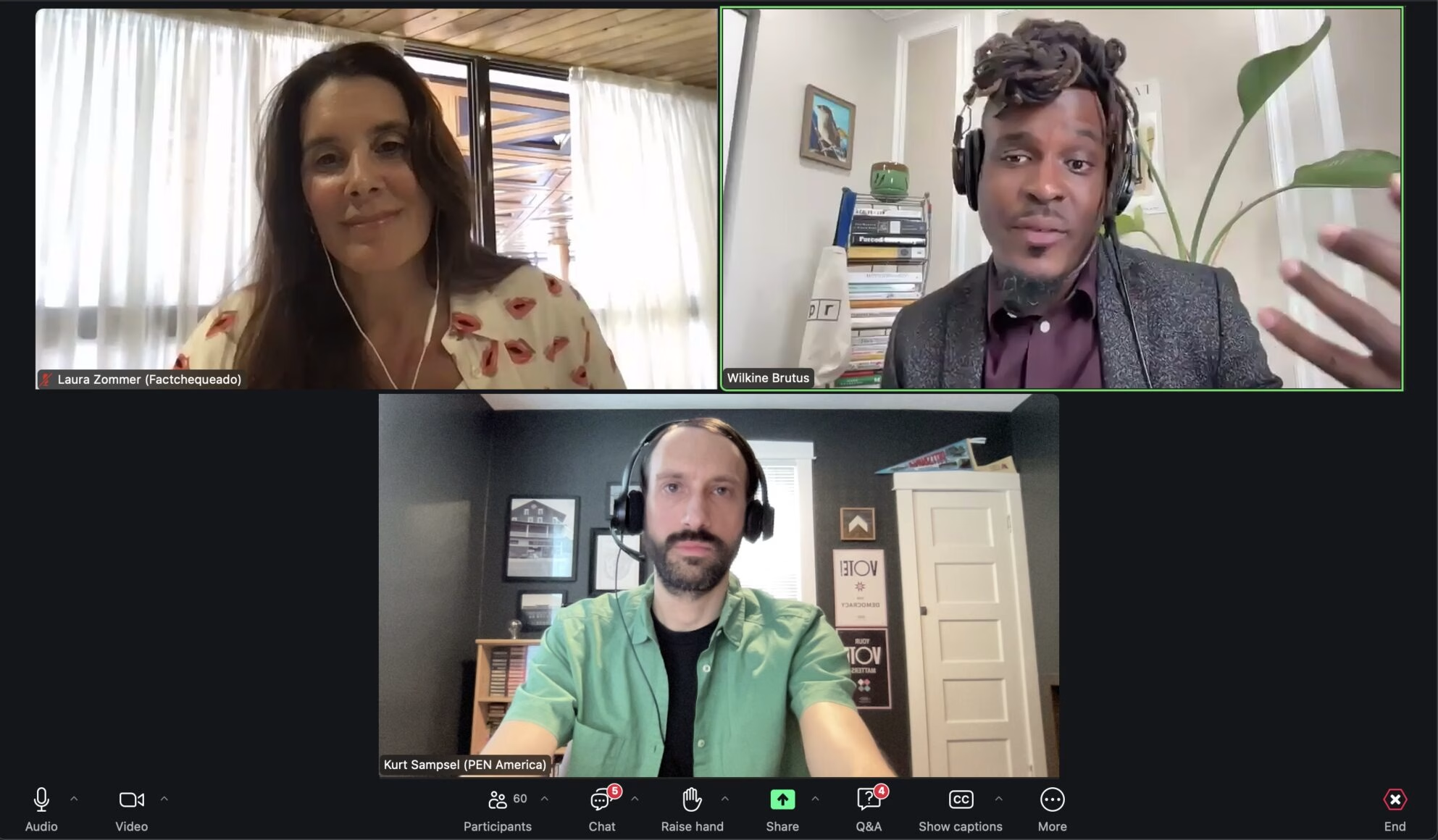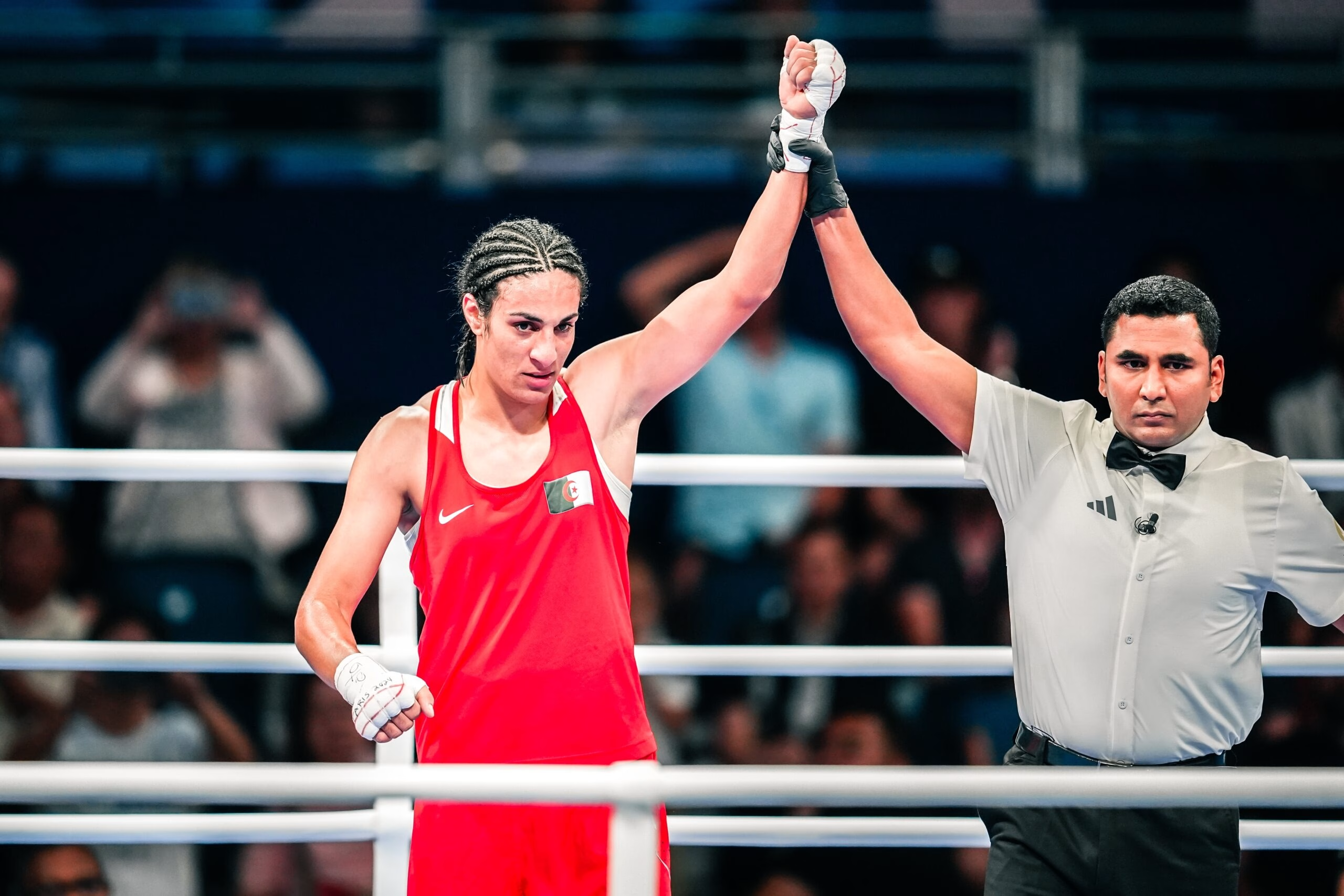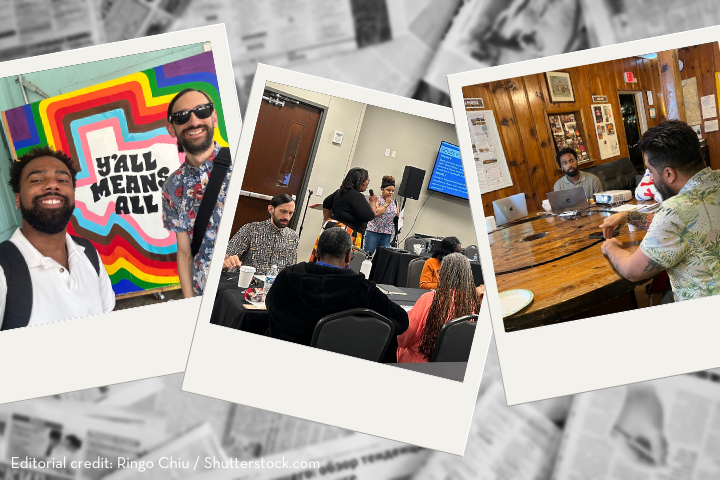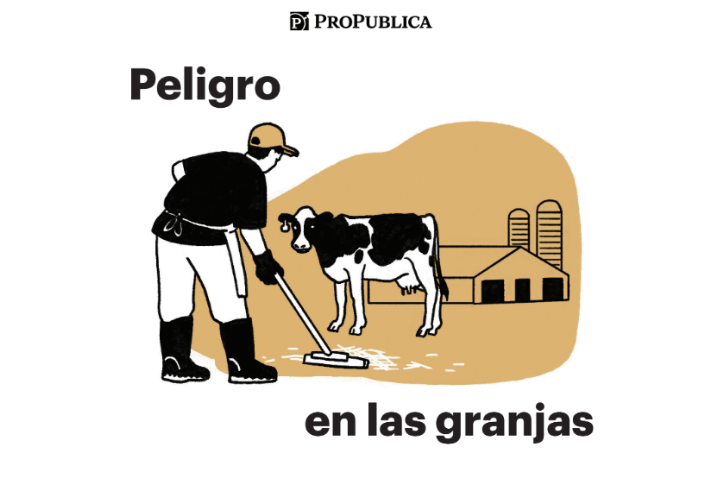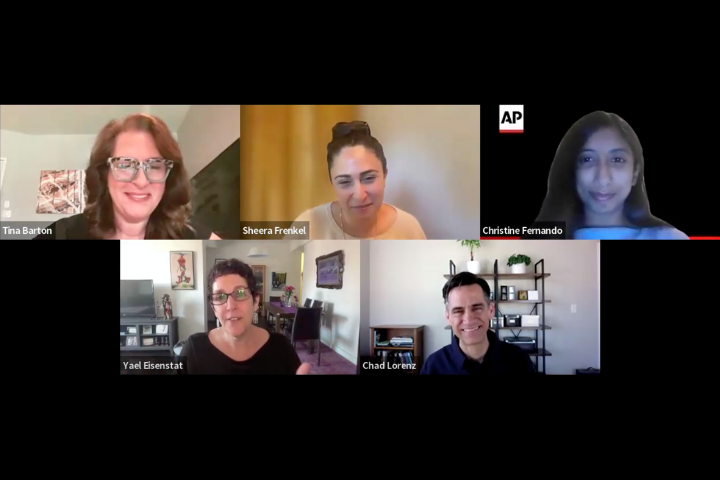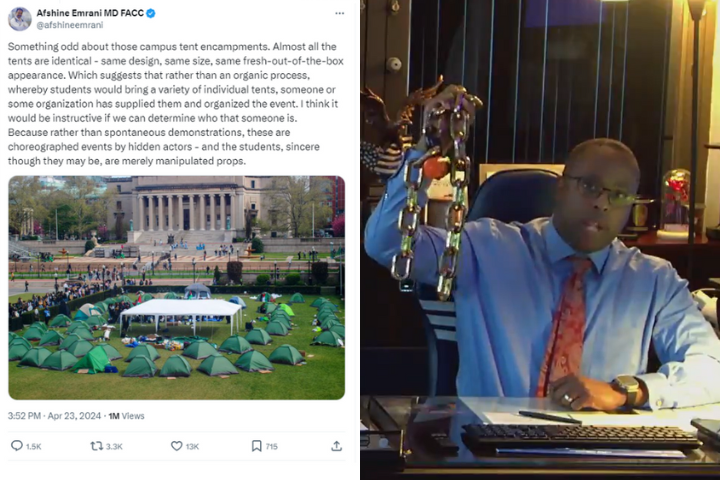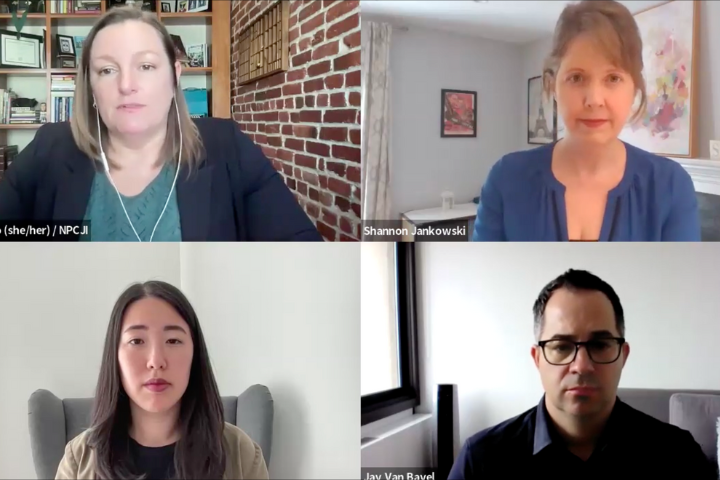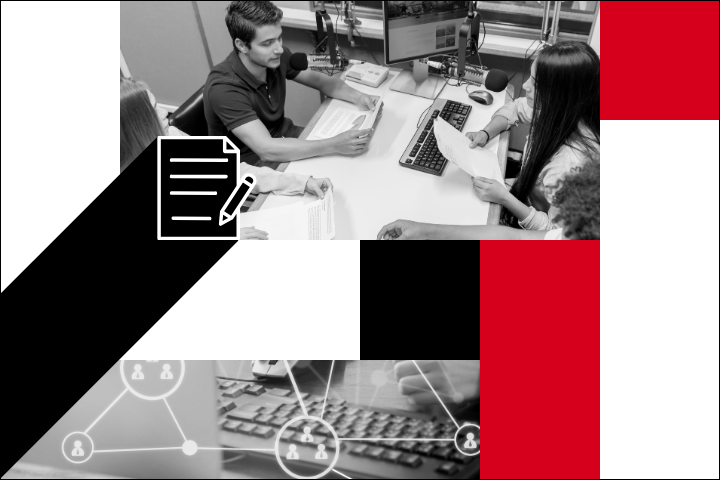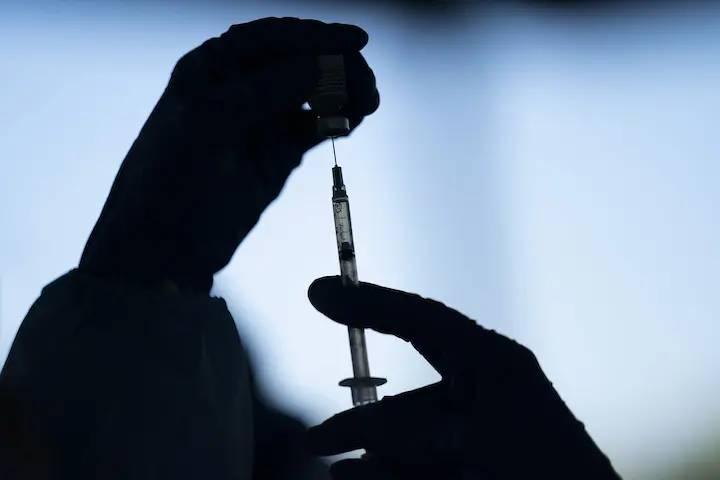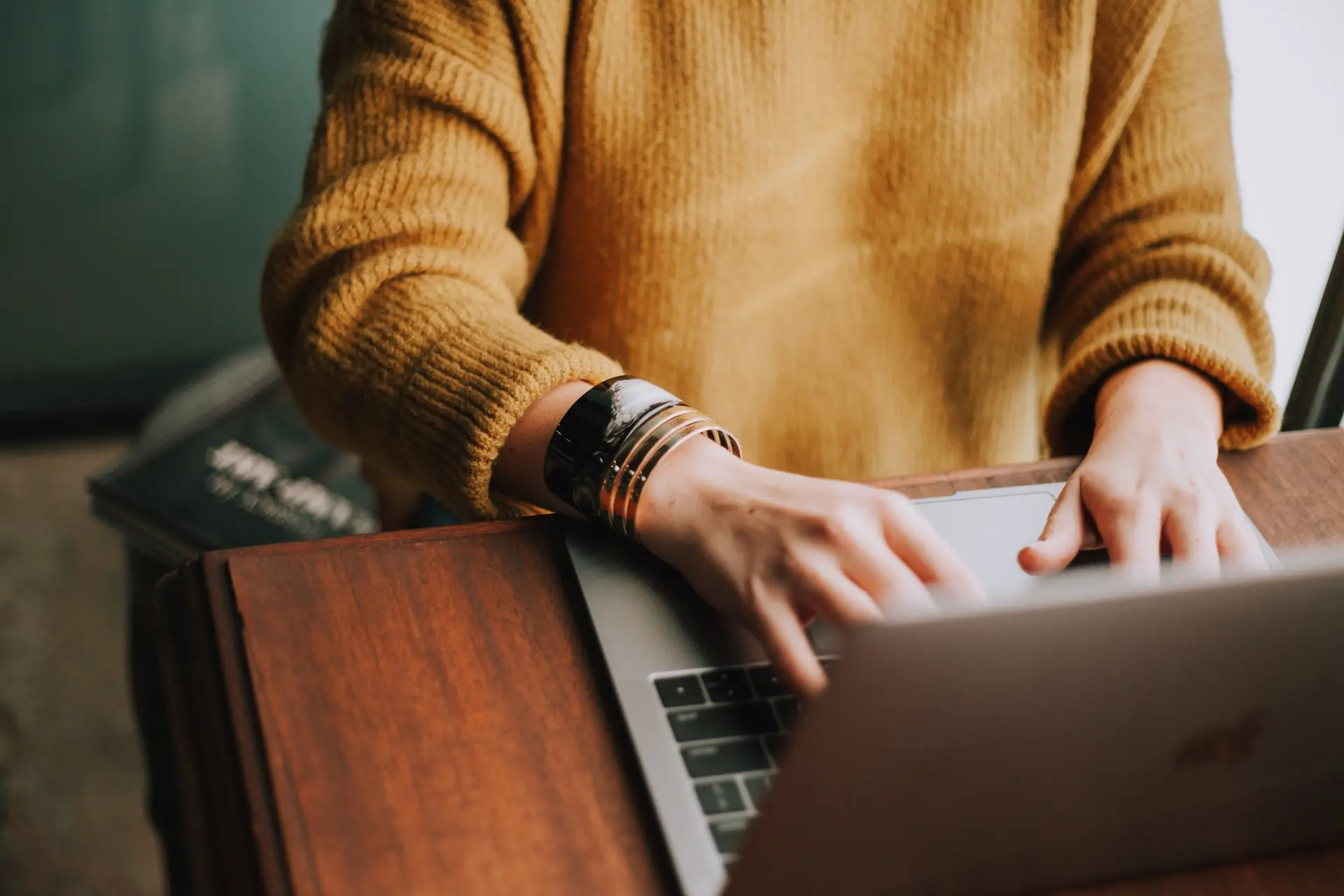This Q&A is part of a series of interviews with journalists and experts who regularly handle disinformation. The interviews will appear regularly through the election and beyond to highlight best practices, insights, case studies and tips. Our goal is to provide a resource to assist reporters and community members through the news events of 2024.
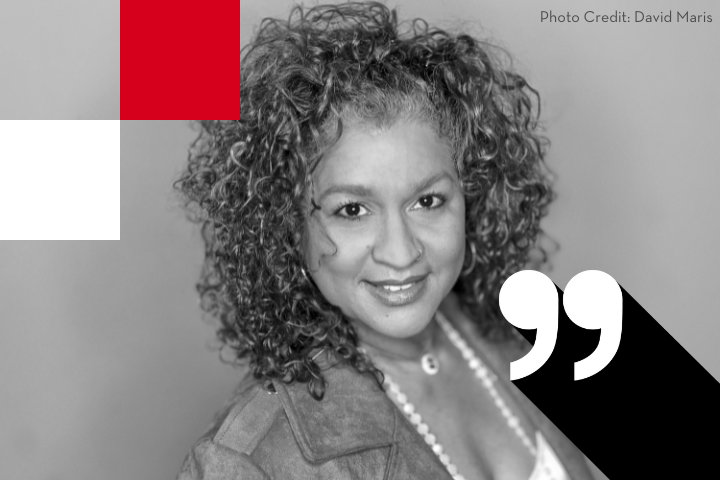
As an investigative journalist in Venezuela, Tamoa Calzadilla saw firsthand what happens when news and information become battlegrounds for autocracy. Today, as editor-in-chief at Factchequeado, a Spanish-language fact-checking and information hub, she helps make sure that Latino communities in the United States have access to accurate, trustworthy information.
This interview was edited for length and clarity.

Tamoa, you lived and worked in Venezuela before coming to the United States in 2015. What were the circumstances that led you to leave Venezuela?
Ah, the first question is hard. A lot of things happened between 2014 and 2015.
Before 2014, I was an investigative journalist. I led a team of investigation units in Caracas, Venezuela. I managed reporting about corruption, human rights violations, and the circumstances under the dictatorship that controlled Venezuela. It was a difficult time, and I endured a lot of things with my team. But in 2014, after Hugo Chavez died, a lot of things changed with journalism and media outlets, and the censorship was huge. The journalists were persecuted. And in 2014, I published stories with my team against the government, against the dictatorship, and we had a lot of problems.
The other thing is that my husband is a journalist, too – he’s a photojournalist. He was on an assignment, and he was detained, and his photography equipment was seized by the authorities. They said that they were going to investigate my husband for espionage. One month after that, we went for a trip, and when we returned home, we found our computer was stolen. We decided, “Okay, we have to go.” It was hard, but we decided we had to leave Venezuela.
We thought about Mexico, about Panama, about Colombia. The last country in my mind was the United States because of the language, of the background. But the circumstances gave me the opportunity to work with Univision News as an investigative journalist, and I spent six years working for Univision – the last two years dedicated to fact-checking.
Univision News started the first Spanish language fact-checking platform in the United States. I was one of the founders. And then in 2020, I was in charge because I relaunched El Detector. We did a lot of work in 2020 in the middle of a lot of mis- and disinformation about the election process and the Covid vaccines. And in 2022, I joined Factchequeado.
With your background in journalism, what most surprised you about news and information in the U.S.?
The first thing is the freedom to say – to publish – whatever you think is needed. The other thing is the existence of open sources: government agencies with public databases, access to expert authorities, the ability to use the Freedom of Information Act to ask questions from agencies like Customs and Border Protection or the National Institutes of Health. It’s very different in Venezuela – especially with the dictatorship.
It was a lot of change, and I had a lot of difficulty expressing myself. And as a journalist, you work with your words, and for me, it was very hard to speak English and to express myself with complex ideas. I’m still struggling with that.
You work as editor-in-chief at Factchequeado. What’s involved in that?
I decide with the team the articles that we are going to write, the videos we are going to publish, and what kind of disinformation or narratives we have to counteract. We’re monitoring social media platforms every day, and we receive questions from the audience in WhatsApp channels.
Another part of my work is representing Factchequeado to the public. I have to communicate – on radio, in conversations, in panels, at conferences, in interviews – about the work that we are doing. This part of the work is fantastic – I love it. In English it’s more difficult for me, but I love it. I love to say what we are doing and why – why we are serving Latino communities.
I love to speak about my experience. I love to say that I came from a country where we lost democracy. We lost institutions, we lost credibility, we lost everything. And that’s the reason why I’m committed to this work.
What is distinctive about the information challenges of Latinos in the U.S.?
First of all, studies show that Latinos and Latinas are more reliant on social media outlets to inform themselves. Another thing that is particular to Latino communities is the use of WhatsApp as the most popular messaging app. WhatsApp provides information, communication, the stickers, the hearts – but disinformation and misinformation, too. And disinformation travels across borders in WhatsApp – from Latin America to the United States to Spain – and people don’t have context to understand all the content that’s circulating there.
At the same time, the quality information in the U.S. is in English. The authorities speak in English, the scientists, the doctors, everything is in English. There are more fact-checking platforms in English. Some of the English fact-checking platforms are doing some work in Spanish, but it’s not enough.
An additional factor is that you have a background as a Latino that makes you more fearful about some things than other people. For example, for Venezuelans, Nicaraguans, and Cubans in the U.S., it is difficult to understand that electoral fraud is not a likely possibility because in our country, we have failed systems, and the fraud is real. And the people don’t trust institutions. So, when bad actors in the U.S. spread disinformation about electoral fraud, fraudulent ballots, etc., it is easy to believe for some Latino communities.
Factchequeado recently launched #FactChallenge, a media literacy course in WhatsApp. Could you describe the course and why you and your colleagues created it?
Yes! We are so excited about this because we understand that media literacy is one of the most important things to do in the middle of the boom of AI and disinformation campaigns. But when you speak about media literacy like a teacher, like a professor in class, it’s boring.
So, the idea was to approach the topic with joy, with the way that Latino communities are. Latino communities are funny and relaxed, so the idea was to create a playful way to spread media literacy so that the audience doesn’t feel bored. That’s why it’s a game, a challenge. “Challenge” is a familiar trope in TikTok and social media, and we wanted to play with that. I think it’s great, and it’s an evergreen product because you can always change the examples. The game is very easy to use, easy to share, and the idea is for this kind of product to go viral.
Since starting this work, what have you learned? What would you recommend to others who work against disinformation?
In my journey from investigative journalism to fact-checking work, I learned that a lot of tools and skills that you learn in investigative roles also work in fact-checking, but it’s not the same. The way that you manage the hypothesis is different, and the conclusion is different. In fact-checking, you have to present a lot of evidence, data, connections, and then you give a rating: this is false, this is out of context, this has no proof or evidence, or this is true.
What I would recommend is that you have to challenge yourself to take different approaches to the audience, to the journalism, to the social media platforms, and to the ways that the disinformation is circulating. If that content that’s going viral is short videos, you have to try short videos to explain your work. If the disinformation is in WhatsApp cadenas, you have to try to make cadenas. You have to try to be wherever the disinformation is.
My other recommendation is to listen to the audience. What is the conversation today? Where is the need for information? Because not everything is about “This is false. This is true.” Sometimes it’s about explaining complex things. I think that the work is trying to fill the gap of the information desert, because a huge information desert happens when people have language and cultural barriers.
What worries you the most? What do you aspire to do?
As a journalist, and a person, I’m very concerned about the effect that disinformation and misinformation have on your life – of course in democracy, but on all that you face in your life. And I’m really concerned about how people lack trust in everything – scientists, evidence, critical thinking. This is very dangerous.
In my work I would like to recover a little bit of trust in good journalism and teach people how to consume content because everybody has a smartphone, but not all people know how to use it. And I believe in media literacy work because you need to explain how to use your smartphone. You need to ask questions to your family group – to your aunt, to your uncle, to your abuela – what is the source for this? How and why was this video recorded? I want to teach people to ask the correct questions to stop a little bit of disinformation. And as a journalist it’s a commitment.
Tamoa Calzadilla is editor-in-chief at Factchequeado, where she leads a team dedicated to meeting the information needs of Latino communities in the United States. The former director of El Detector at Univision News, she has been recognized by many honors, including receiving the 2024 John S. Carroll Journalist of the Year award. She is a 2024-25 JSK Journalism Fellow at Stanford University.

